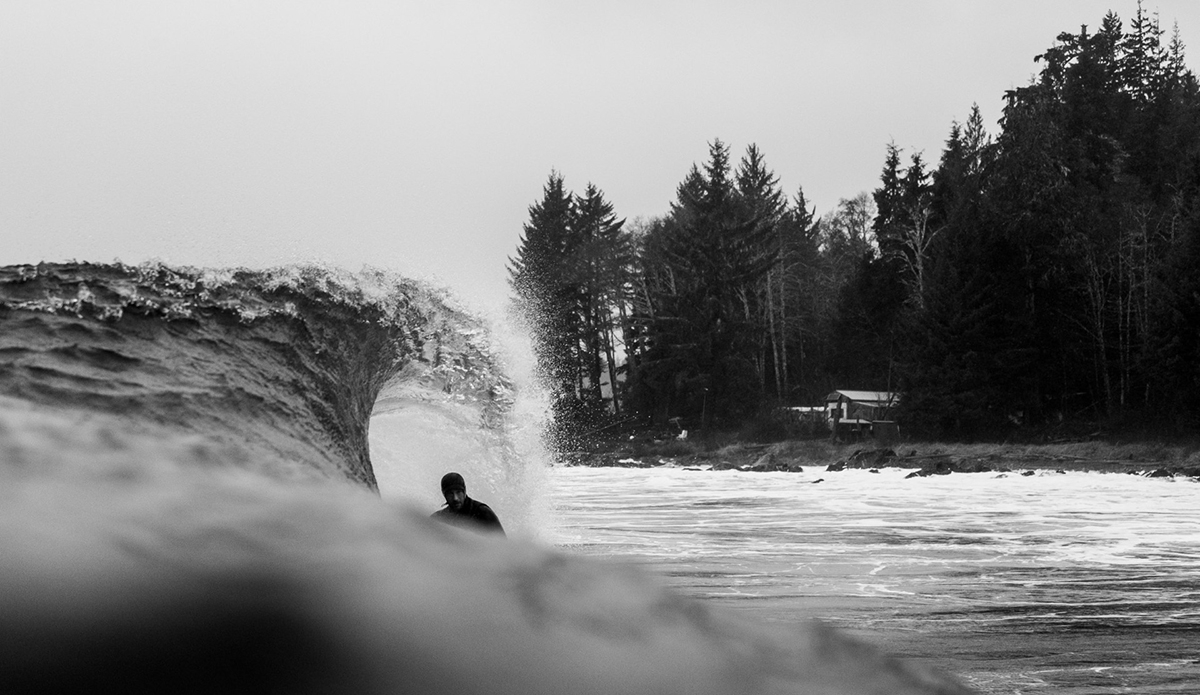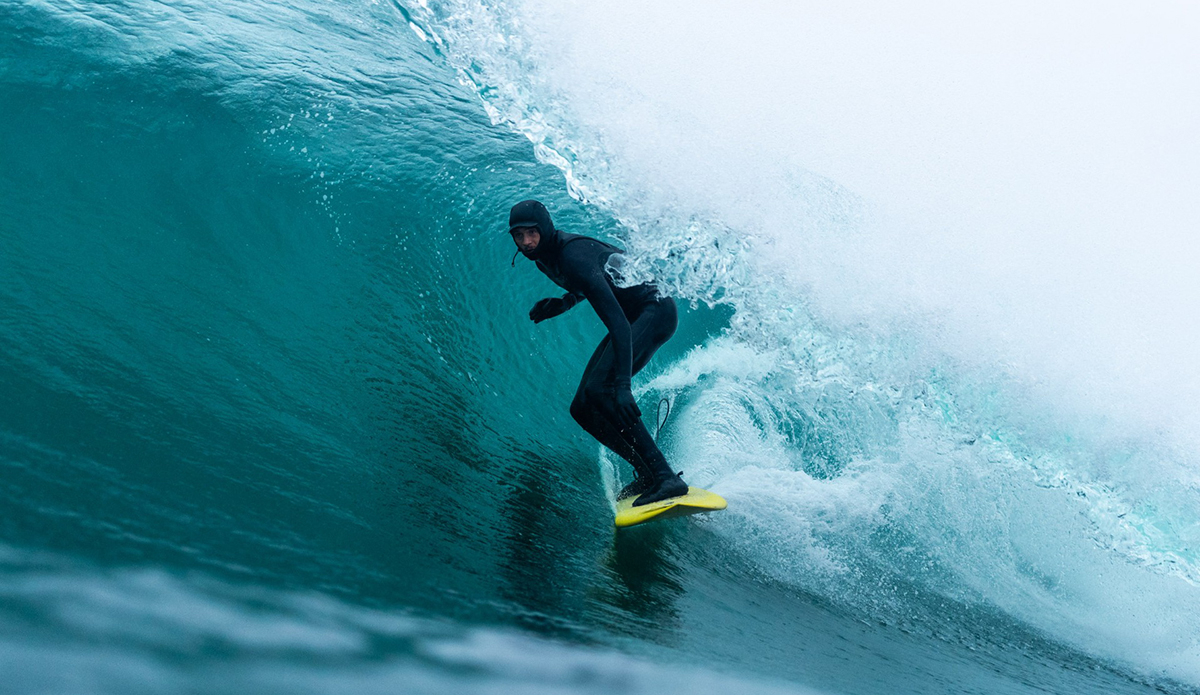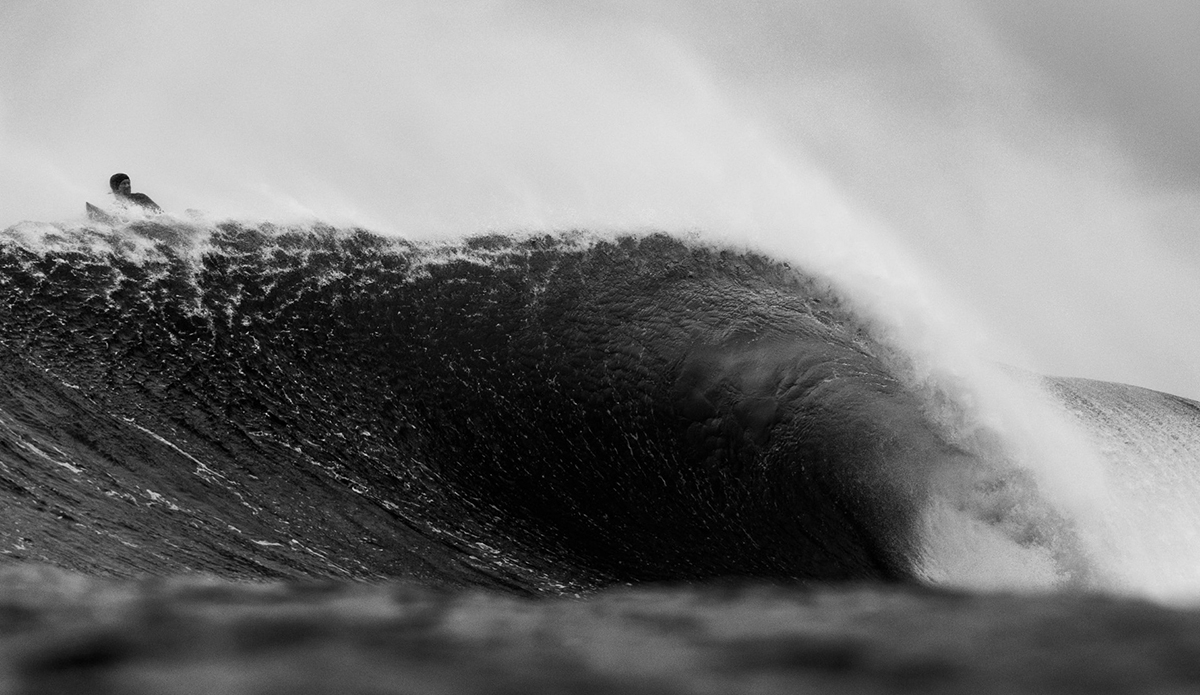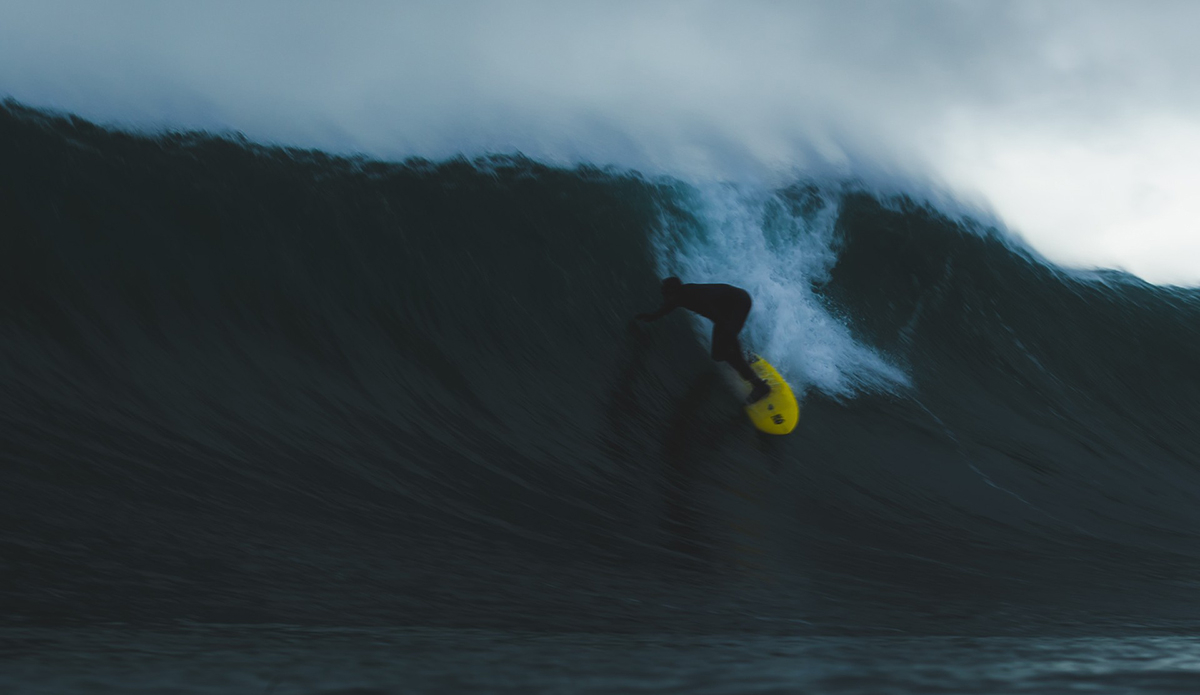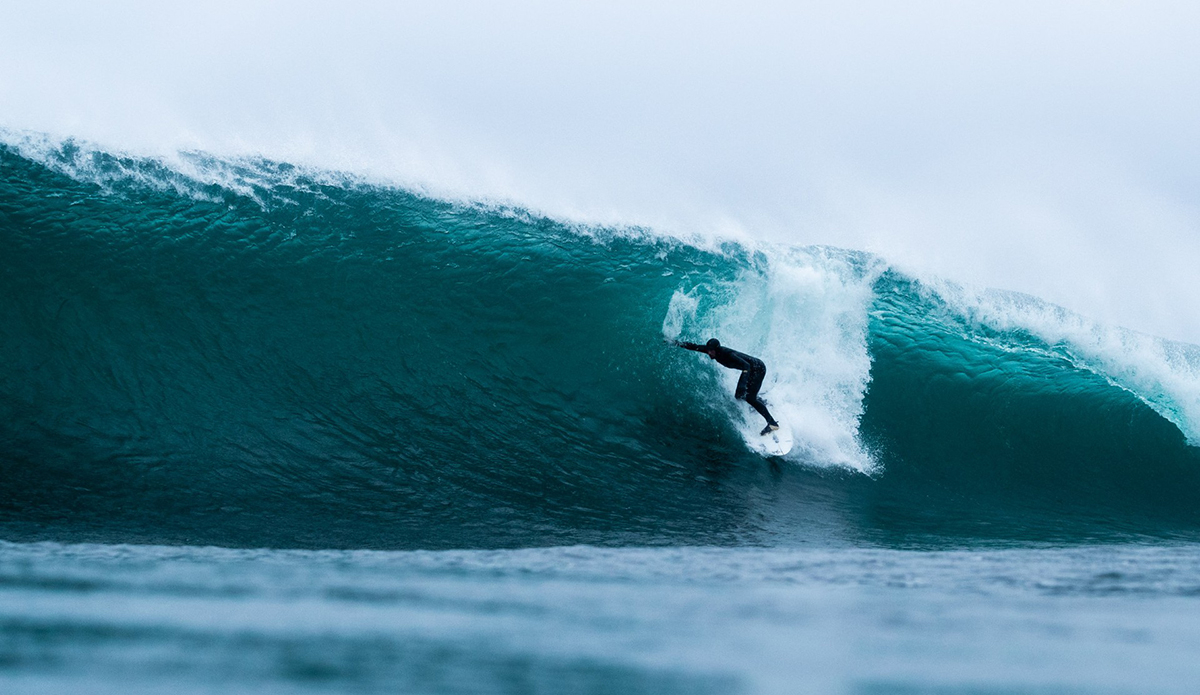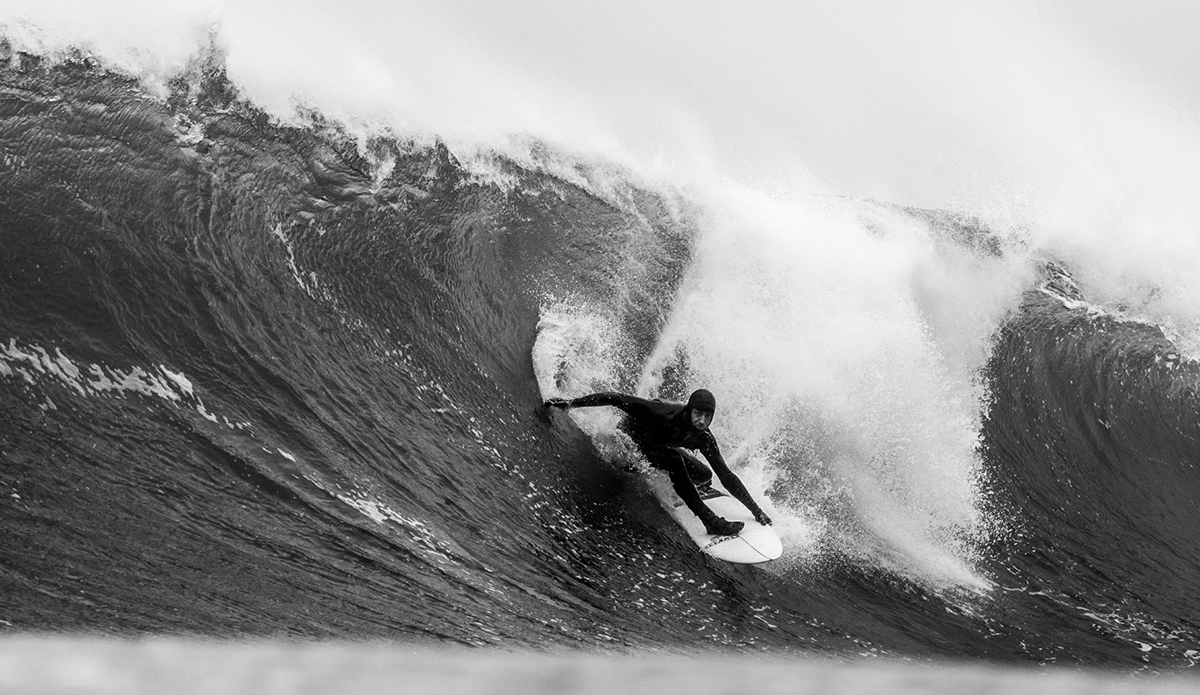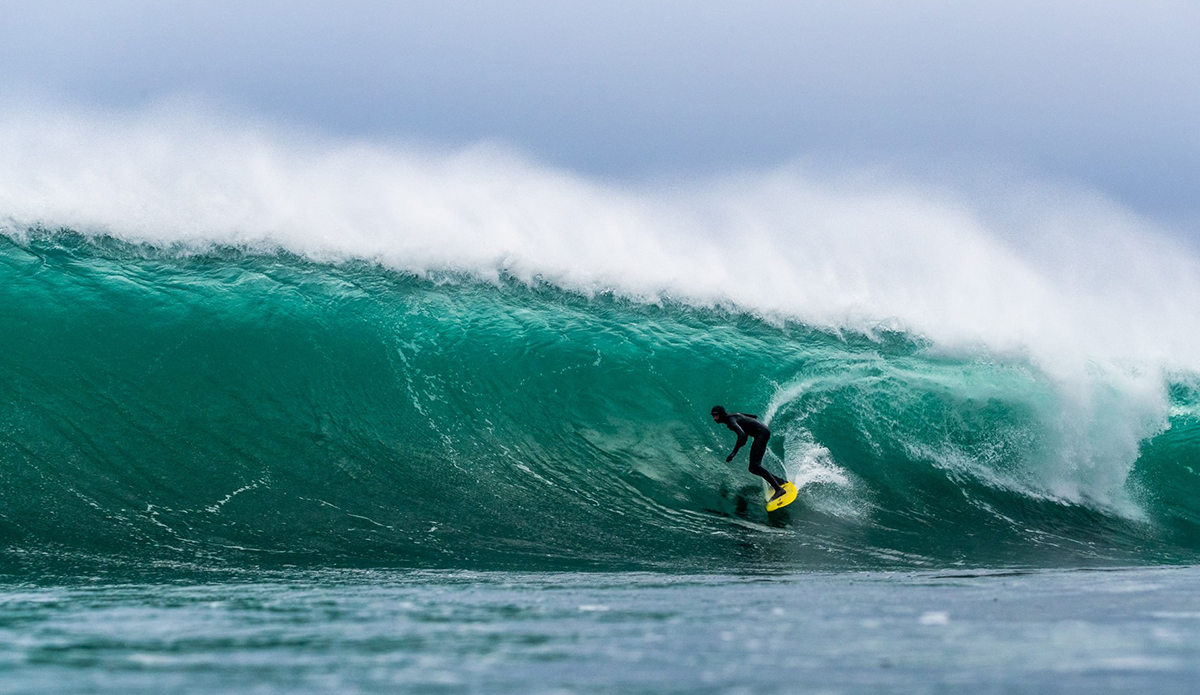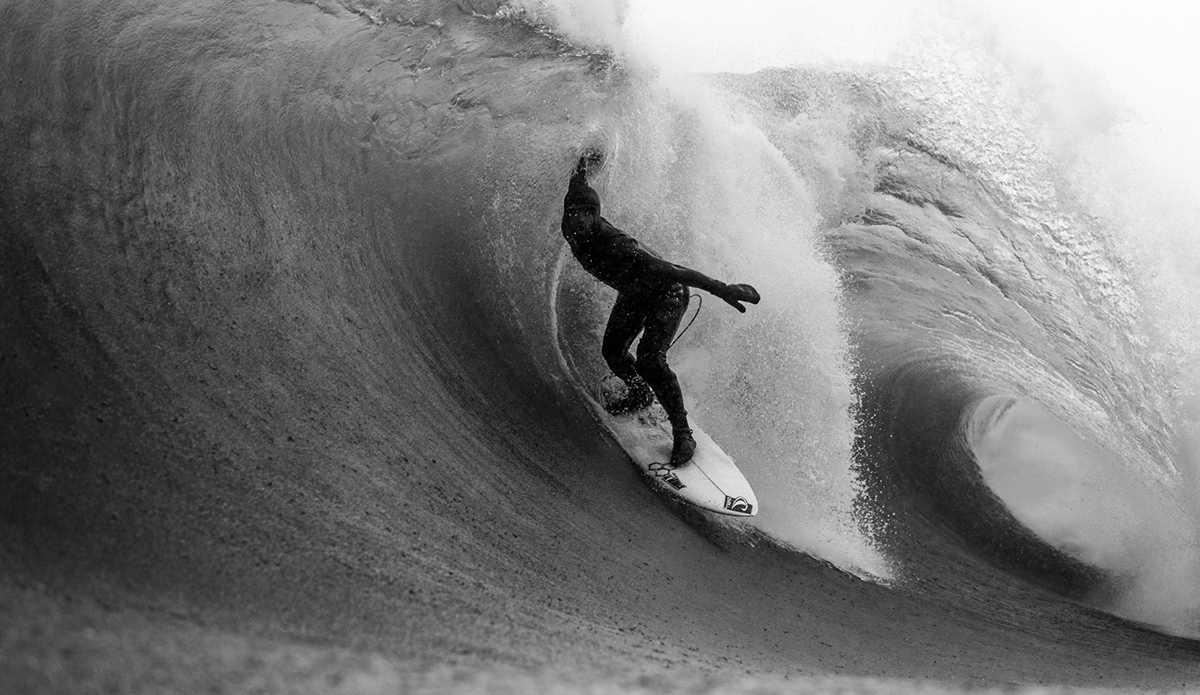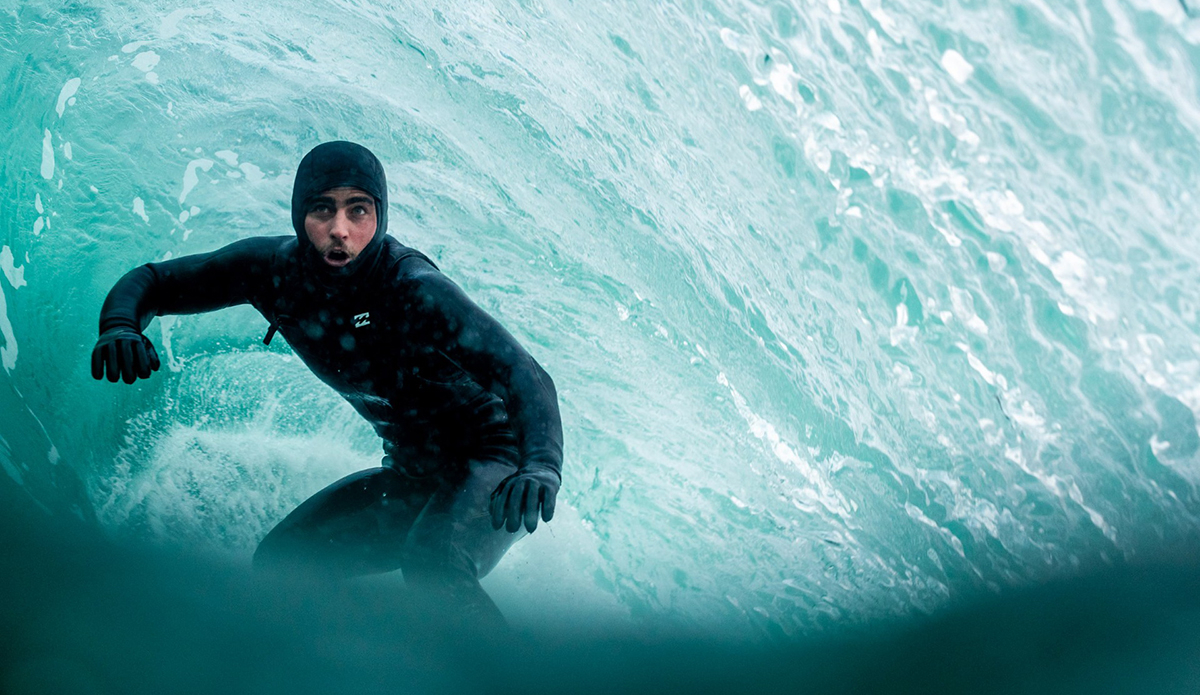I drive back to the coast with tears in my eyes, receiving text after text from friends, family, and surfers sending their love and asking about the upcoming swell, wondering if I’m going to be able to make it. I’ve seen this forecast on the horizon for a while, but now I face a moral dilemma: should I even be here?
I arrive earlier than usual to embraces, hugs and kind words from my closest friends and colleagues in the surf community. Slowly, I slip into my wetsuit and arrange my camera inside the water housing. Normally, when the waves are pumping like this,I can’t help but feel anxious, excited, and nervous about what’s to come. But today, in this moment, I feel nothing, numb before I even touch the bone-chilling water.
At the uneven shoreline, navigating the slippery rocks with the high tide and solid swell pushing into me, I have difficulty timing my way out into the lineup. Instead, I simply stand there and speak, repeating out loud with no one around to hear me,“Let me in, let me in. I need to heal, please let me in.”
Less than 24 hours earlier, I woke up to a 3 a.m. phone call from my aunt. “Marcus, your mom has gone…Peacefully in her sleep.” It felt more like facts and less like destructively emotional news — we had been anticipating this for a few days.
The first words out of my mouth were, “She’s so smart… She never would have left if my sister or I were in the room with her.” Rushing to the palliative care unit at Nanaimo General Hospital, I found my family — in tears — waiting for me, the last to arrive, to come say goodbye. I walked quietly and mindfully down the hall, listening to my footsteps and holding my breath. The room was lit with battery-powered candles and my mom lay there in the gentle glow, mouth slightly open, looking peaceful, as if sleeping. Realizing this would be my last time seeing her, I touched her forehead, surprised at how cold she was. My girlfriend asked if I wanted a moment alone. I replied instantly,“There’s nothing left to say, it’s not her anymore.”
Shortly after making my way into the lineup, I’m mesmerized by empty waves hitting the shallow reef at the top of the point and rooster tails of water streaking skyward from the howling offshore wind. I sit in a trance and forget I even have my camera. I start shooting just in time to see Pete Devries catch the biggest wave of the morning, speeding down the face, only for the bottom to suddenly drop out beneath him. He dives through the barrel to avoid injury but surfaces with all the fins blown out of his board and blood trickling from tears in his wetsuit. He gives me a half-hearted thumbs-up and paddles in. I notice the stunned faces in the lineup — if someone like Pete, one of the best, can take such a close-call spill, what does that mean for the rest of us?
Later, we’d learn that once Pete reached the beach and the adrenaline wore off, he fainted and had a minor seizure. In that moment, I was reminded of how fragile even the strongest can be when something vital gives way. It’s a strange thing to witness — that split second when someone is no longer invincible. Pete was OK, but his day was over before it even began, and I can’t help but wonder how many moments we don’t see coming, ending before they even start.
My mom had been suffering from breast cancer for the last eight months — a tumultuous experience, to say the least. In and out of the hospital, with different doctors and specialists, in and out of chemotherapy, watching her body deteriorate and age 20 years in such a short amount of time. The agony of watching a loved one in pain is unimaginable, until it happens. It happened relatively quick but I also had a feeling things were getting close to the end, despite an initial diagnosis saying she would have a few years left.
I wrote my mom a letter, letting her know everything I ever wanted to say, thanking her for being the best mom she could ever be to me. I was lucky enough to ask her all the questions I was curious about, even the mundane things that don’t matter, like what her favorite childhood memory was and what she was most excited about in the world when she was my age. In the end, I read that letter to her as she lay bedridden. I’ve always struggled to express my thoughts and feelings accurately in the moment, but writing it all down gave me the space to share how I truly felt, expressing gratitude, and saying goodbye, when words would fail me.
A few weeks prior to her passing, I got a tattoo honoring one of mom’s famous catchphrases: “Good morning, canary.” She’d say this to me every morning as a kid, so I had started saying it to her every morning in the hospital.
Back in the water with Pete watching from the sidelines, two of my good friends, Blair Forsyth and Michael Darling, go wave-for-wave on the incoming sets. I can’t believe how well they’re surfing without the subconscious obligation of handing priority over to one of the most iconic guys in the lineup. Somewhere in all the excitement, I forget that my mom died yesterday. Then Michael paddles back to the lineup, chats to me briefly about the previous wave then asks how I’m doing. I reply with tears. Michael — very soft-spoken, slightly awkward, and often at a loss for words — gets off his board to hug me in the water. Then he says something I’ll never forget, “You’re exactly where you’re supposed to be.”
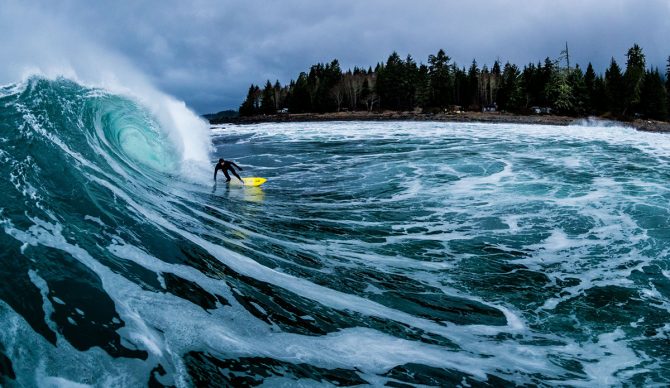
The power of the ocean: it can frighten, and heal. Photo: Marcus Paladino
My mom was always so proud of the photographer I became, but more so of the person I am. I credit all the traits she loved — honesty, hard work, generosity, positivity — to her. She never had an agenda for me in life; she just wanted me to be happy and I’m truly grateful that she got to see how happy I am with the life I’ve created for myself. She often worried about me swimming out and shooting in waves of consequence, but she never voiced it out of respect for the effort and determination she’d seen me put into my craft. Regardless, I started wearing a helmet this past year, just in case.
I swim for about six hours that day, shivering to the core, because somehow I know if I get out of the water, then reality will start to settle in. I’ll have to start thinking about how to plan her funeral, what to do with her condo, how I was going to tell people the news, and how to find a way to deal with an experience I never thought would come so soon in my life. It’s incredible how the ocean has such a powerful energy and can make you feel such an array of emotions, almost an out-of-body experience.
The time I spend in the water — just a day after my mom’s passing — feels as if I’m being lifted somewhere, a place of knowing that with enough time everything is going to be alright. Later, I speak with my family and tell them to go out and do something they love, for her, find an outlet of joy to temporarily numb this loss.
And I believe it just as much today. If you are hurting, or lost, go do what you love. Find your equivalent to swimming in the ocean and photographing your friends, whatever it is, go do it. Maybe because it’s what you need right now and definitely because that’s what Laura Eaton would’ve wanted you to do.
But also because it will fill those empty moments in your heart. It will produce moments of joy, maybe not many, but they will be there and they will add up until there is more joy than pain. Like the tide, time sweeps over the wounds of grief, wearing down the sharpest edges until they’re smooth enough to bear.

